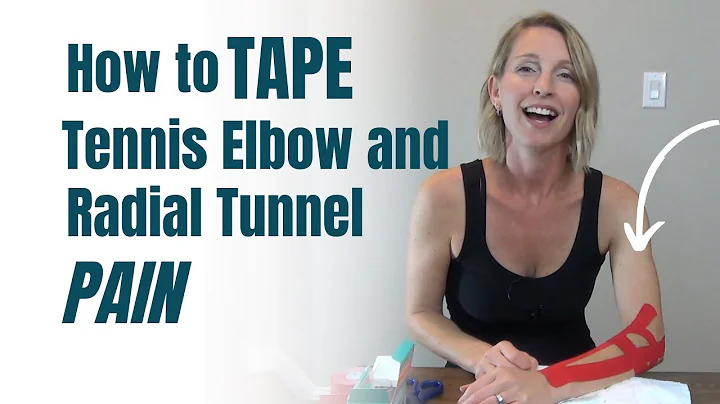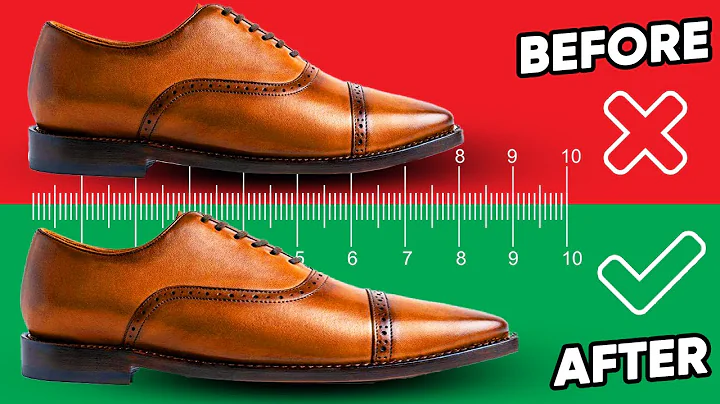Essential Tips for Maintaining your Piano in Various Environments
Table of Contents:
- Introduction
- Maintaining Pianos in Different Environments
- 2.1 Importance of Physical Environment
- 2.2 Significance of Acoustic Properties
- Maintaining Pianos in Humid Environments
- 3.1 Effects of Humidity on Pianos
- 3.2 Tips to Mitigate Humidity Damage
- 3.3 Damp Chaser System: A Solution for Excessive Humidity
- Maintaining Pianos in Dry Environments
- 4.1 Effects of Dryness on Pianos
- 4.2 Importance of Humidification Systems
- 4.3 Other Measures to Prevent Dryness Damage
- Protecting Pianos from Sun Damage
- 5.1 Harmful Effects of Sunlight on Pianos
- 5.2 Window Treatments and Sunlight Avoidance
- Improving Piano Sound in Different Room Acoustics
- 6.1 Dealing with Dead Acoustics
- 6.2 Enhancing Piano Sound Projection
- 6.3 Managing Loud Pianos in Noisy Environments
- Conclusion
- FAQ
- 8.1 How does humidity affect the soundboard of a piano?
- 8.2 Can placing a cover over the piano prevent humidity damage?
- 8.3 Is it necessary to use a humidification system in moderate climates?
- 8.4 How can excessive dryness affect the longevity of a piano?
- 8.5 Does placing the piano on a rug help improve its sound quality?
- 8.6 Can tapestries and drapes help improve room acoustics for the piano?
Maintaining Pianos in Different Environments
Pianos are exquisite musical instruments that require careful maintenance, especially in diverse environmental conditions. Whether you live in a coastal area, the desert, or the mountains, understanding how different environments impact your piano is vital. This article aims to provide you with valuable tips and insights to help you maintain your piano effectively, considering both its physical environment and acoustic properties.
Importance of Physical Environment
To ensure the longevity and optimal performance of your piano, it is crucial to create an environment that is neither too humid nor too dry, hot, or cold. Pianos thrive in spaces with stable conditions. However, individuals residing in coastal regions, such as beachfront properties, may face challenges due to excessive humidity. Fortunately, there are simple steps one can take to mitigate these effects.
Effects of Humidity on Pianos
Excessive humidity can take a toll on piano strings and metal parts, causing tarnishing and rusting. Moisture absorption by felt bushings can also result in sluggishness and a dull sound. One effective method to minimize humidity damage is to keep the piano closed, especially during the night when moist air tends to settle. Additionally, using a piano cover and considering a string cover made of felt can provide further protection against humidity.
Tips to Mitigate Humidity Damage
For individuals living in beach environments, where humidity is a persistent issue, implementing certain measures can significantly alleviate the negative effects on pianos. Apart from using piano and string covers, advanced technologies like the Damp Chaser system or LifeSaver system can be employed. These systems use heating rods to regulate humidity levels, preventing excessive moisture damage.
Damp Chaser System: A Solution for Excessive Humidity
The integration of the Damp Chaser system offers an efficient solution in environments characterized by both excessively humid summers and dry winters. By incorporating a humidistat, this system activates heating rods or a water tank (depending on the humidity level) to maintain optimal humidity under the piano's soundboard. A Damp Chaser system is a wise investment for combating humidity-related piano problems effectively.
Maintaining Pianos in Dry Environments
While excessive humidity poses significant risks, excessively dry environments can be equally detrimental to a piano's longevity. Dry air can cause wood joints to crack and glue to dry out, resulting in expensive repairs. Residents of desert regions or areas with hot air heating systems should be particularly cautious. However, several measures can be taken to prevent dryness damage.
Effects of Dryness on Pianos
In dry environments, such as those with hot air heating systems, a lack of humidity can cause serious damage to a piano. The wood dries out, leading to cracking in wood joints and the soundboard. For instance, pianos that have not been properly humidified can struggle to hold tuning, adversely affecting their overall stability.
Importance of Humidification Systems
To combat dryness issues, humidification systems are highly recommended. The ideal humidity level for a piano is around 48% to 50%. Homeowners can opt for whole-house systems or room humidifiers to maintain optimal humidity levels. Humidification is crucial in preventing the drying out of wood and other materials within the piano.
Other Measures to Prevent Dryness Damage
In addition to using a humidification system, placing a tray of water under the piano can increase the humidity in the immediate environment. Another simple and effective method is to fill the room with plants, as the process of transpiration naturally adds moisture to the air. For extreme cases, when humidity levels drop significantly, using a damp Chaser system with a humidity adding feature can ensure the soundboard remains adequately hydrated.
Protecting Pianos from Sun Damage
While maintaining the physical environment of a piano is essential, considering its exposure to direct sunlight is equally crucial. Prolonged exposure to sunlight can have detrimental effects on the piano's finish, leading to checking and an aged appearance. Preventive measures can be taken to protect the piano from sun damage.
Harmful Effects of Sunlight on Pianos
Direct sunlight can cause discoloration and fading of a piano's finish. This is particularly evident in pianos with lid foldovers, as the part that is not shaded tends to become lighter in color compared to the rest of the piano. The heat generated by sunlight can also lead to damage to the piano case, affecting its structural integrity.
Window Treatments and Sunlight Avoidance
To safeguard the piano from direct sunlight, it is recommended to close shades or curtains when the piano is exposed to the sun's rays. If sunlight exposure is inevitable, employing effective window treatments, such as UV-blocking films or blinds, can help minimize the harmful effects. By implementing these preventive measures, the piano's finish and overall appearance can be preserved.
Improving Piano Sound in Different Room Acoustics
The acoustic properties of the room where a piano is placed play a significant role in the enjoyment and overall experience of playing the instrument. The sound projection and quality can be greatly affected by the room's acoustics, which can range from dead to excessively loud. Taking specific measures can help optimize the piano's sound in various room environments.
Dealing with Dead Acoustics
In rooms with poor acoustics or high levels of sound absorption, the piano's sound may get lost, necessitating continuous pounding to be heard properly. This not only strains the piano but also limits the enjoyment of playing. To address this issue, placing something hard, like a sheet of plexiglass, under the piano can provide sound reflection and enhance projection. It is also advisable to position the piano in a way that maximizes sound dispersion into the room rather than against a wall.
Enhancing Piano Sound Projection
Keeping the piano open and allowing sound to project into the room can significantly enhance the overall sound experience. This is particularly useful in rooms with good acoustics. Additionally, placing the piano on a rug, especially on hardwood floors, helps absorb excess sound from the bottom of the piano. By utilizing these techniques, piano sound projection can be optimized, leading to a more immersive playing experience.
Managing Loud Pianos in Noisy Environments
In environments where the piano may be too loud, causing discomfort to the player or those nearby, closing the piano lid can help in reducing the volume. Additionally, placing the piano on a rug or using soft furniture and thick drapes in the room can absorb sound and make the playing experience more pleasant. Tapestry hangings on the walls can also contribute to sound absorption, improving the overall acoustics of the room.
Conclusion
Maintaining pianos in different environments requires careful consideration of both the physical and acoustic properties of the space. Whether dealing with excessive humidity, dryness, sunlight exposure, or room acoustics, there are effective measures to protect and optimize piano performance. Keeping the piano in a stable and suitable environment ensures its longevity and enjoyment for years to come.
FAQ
Q1: How does humidity affect the soundboard of a piano?
Excessive humidity can cause swelling of the soundboard, leading to changes in the piano's tone and overall sound quality.
Q2: Can placing a cover over the piano prevent humidity damage?
Yes, using a piano cover when the instrument is not in use can help minimize the effects of humidity on the piano's strings and metal parts.
Q3: Is it necessary to use a humidification system in moderate climates?
While moderate climates may not experience extreme humidity levels, it is still advisable to use a humidification system to maintain optimal humidity levels for the piano's well-being.
Q4: How can excessive dryness affect the longevity of a piano?
Excessive dryness can cause cracking in the piano's wood joints, soundboard, and glue, leading to expensive repairs and potentially compromising the instrument's structural integrity.
Q5: Does placing the piano on a rug help improve its sound quality?
Yes, placing the piano on a rug, particularly on hardwood floors, can help absorb excess sound and improve the overall sound quality by enhancing sound projection.
Q6: Can tapestries and drapes help improve room acoustics for the piano?
Yes, tapestries and drapes can contribute to sound absorption, improving room acoustics and creating a more pleasant playing environment for the piano.







